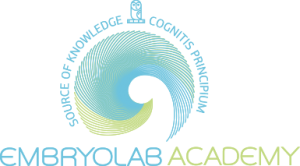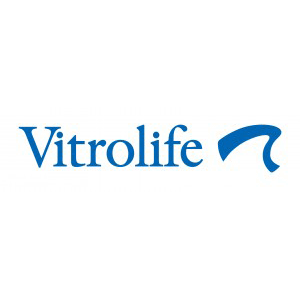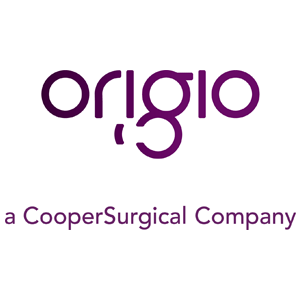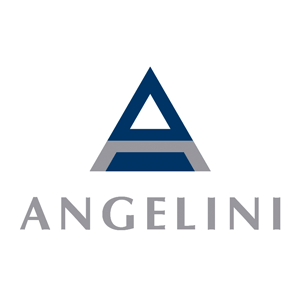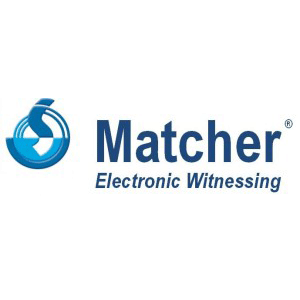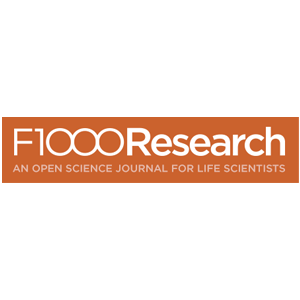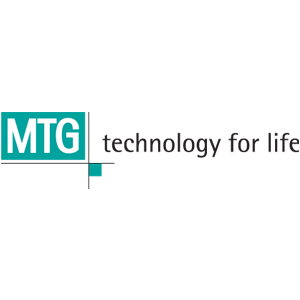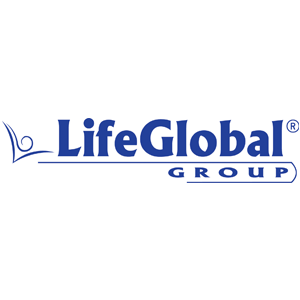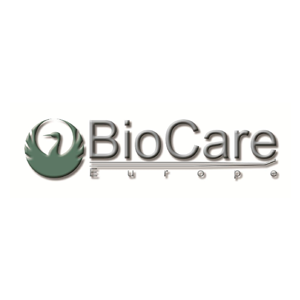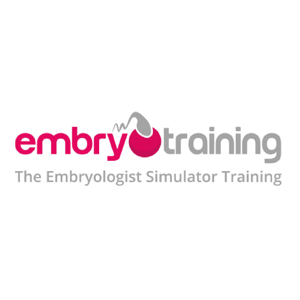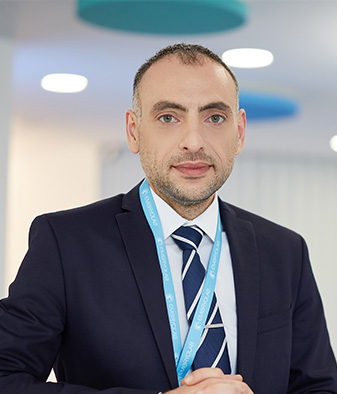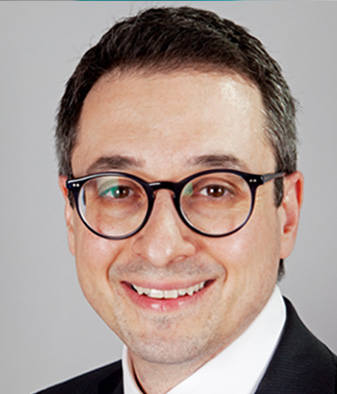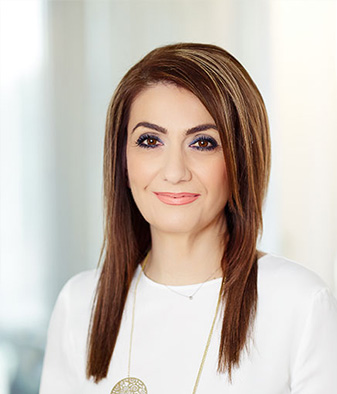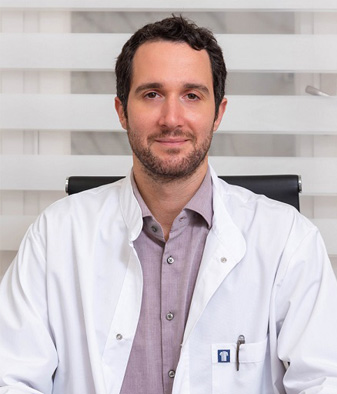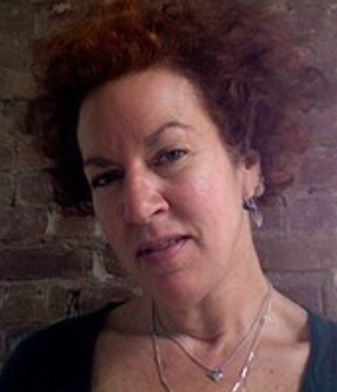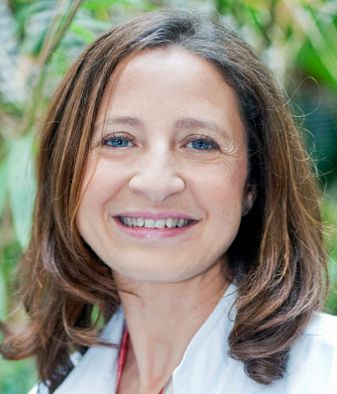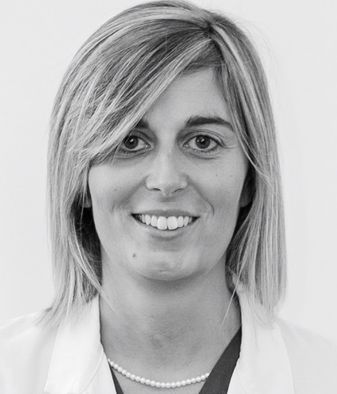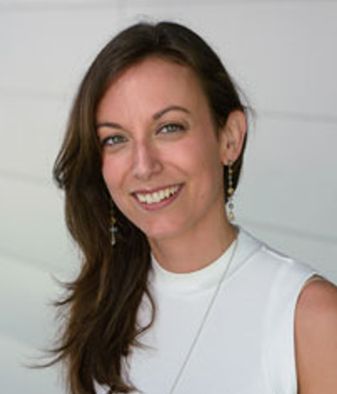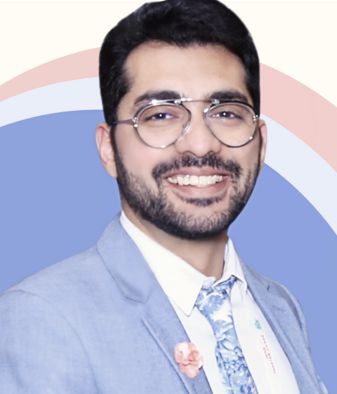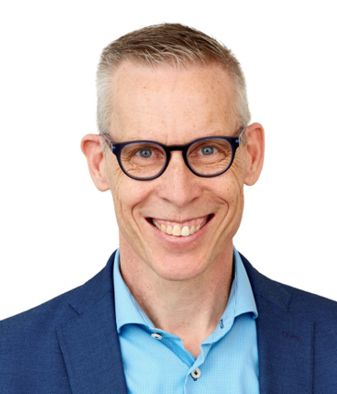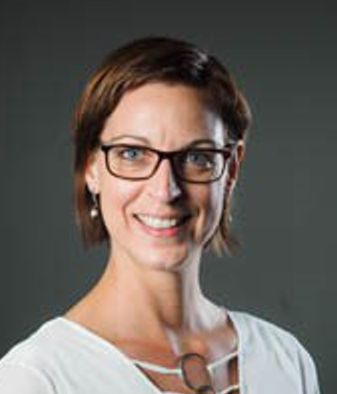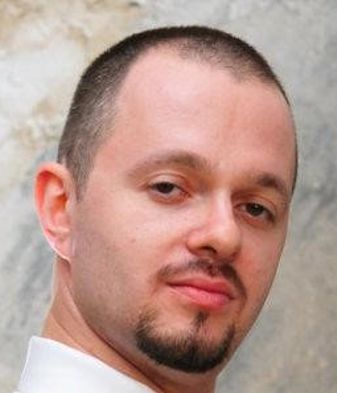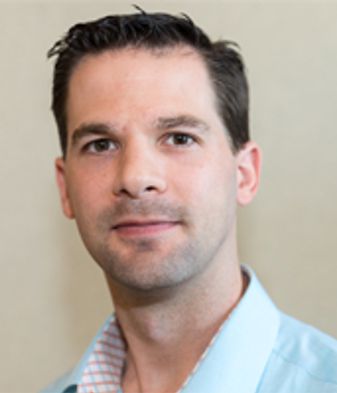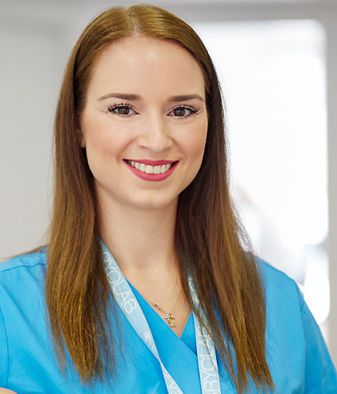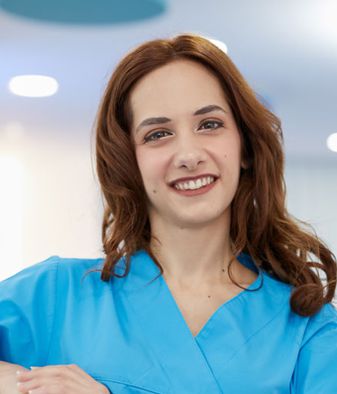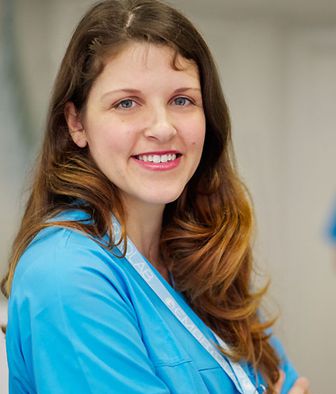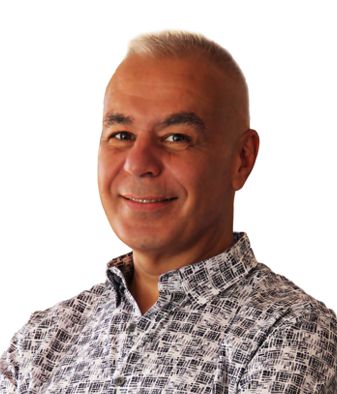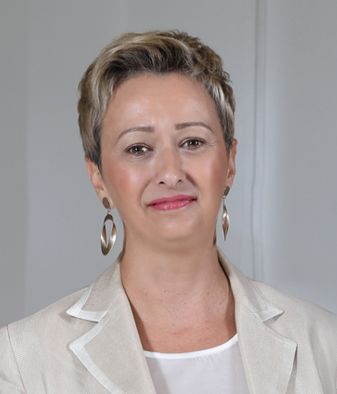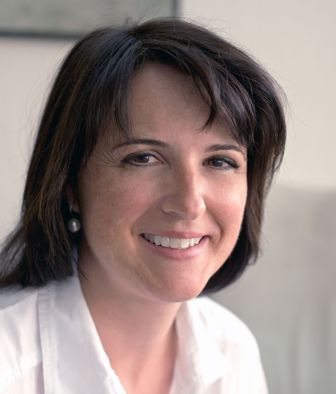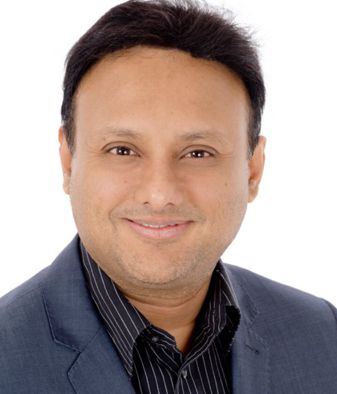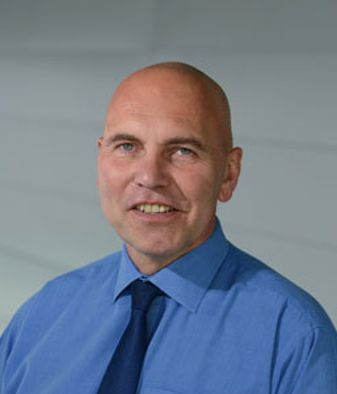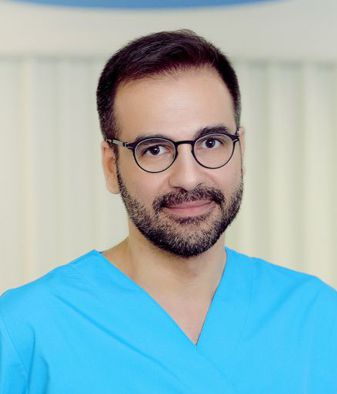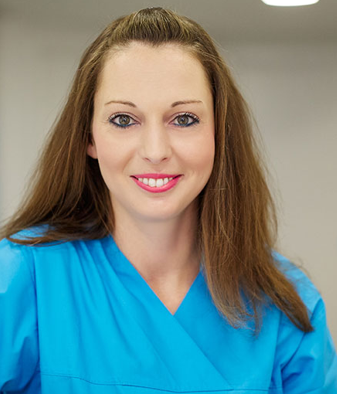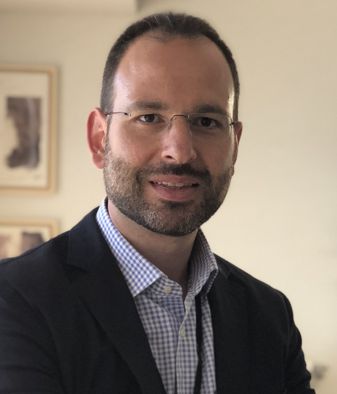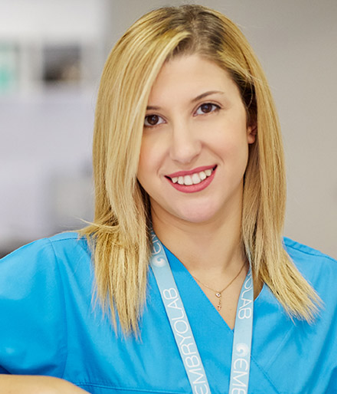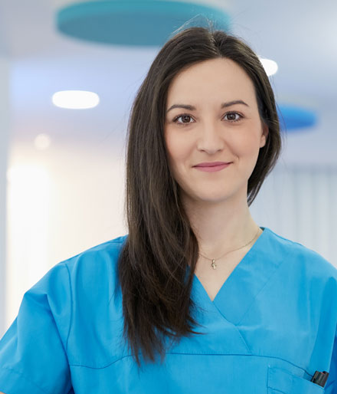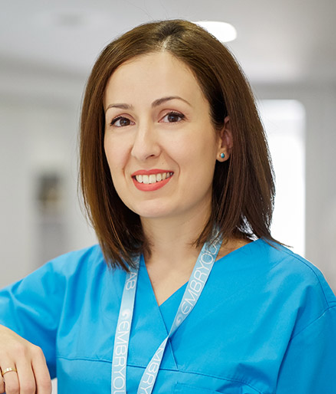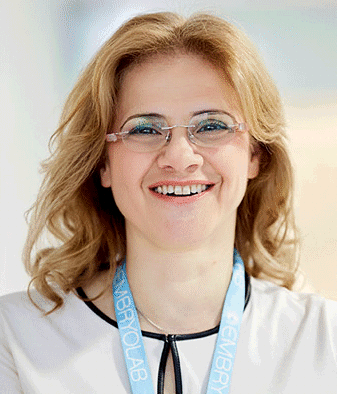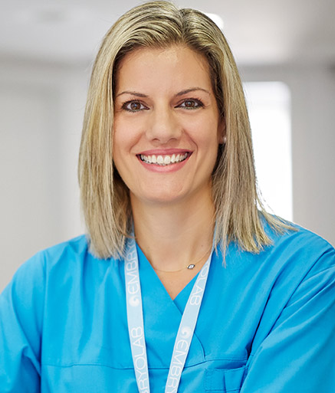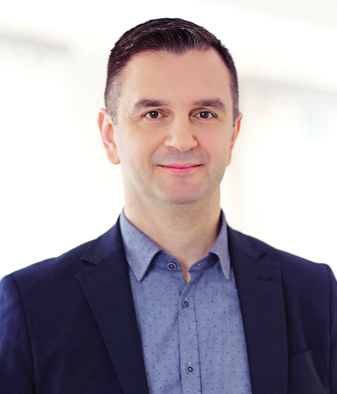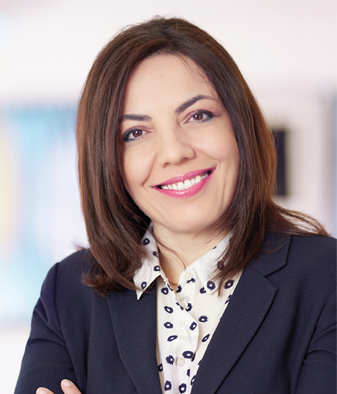Quality and Risk Management in your IVF laboratories: from theory to practice
21-22 March, 2014, Thessaloniki, Greece
Course Objectives
Quality Control and Risk Management in the IVF laboratory plays an important role in the success of any IVF programme. Course objectives are the following:
- To improve knowledge and understanding of all the recent advances in Quality and Risk Management for assisted reproduction technologies (ART) laboratories.
- To focus on all processes performed within ART laboratories and how they can be improved by Total Quality Management (TQM)
- To understand how quality assessment and TQM will provide patients with the best and most safe treatments and procedures available
- To investigate how TQM can be a useful tool to improve efficacy and efficiency, also with reference to financial and administrative aspects
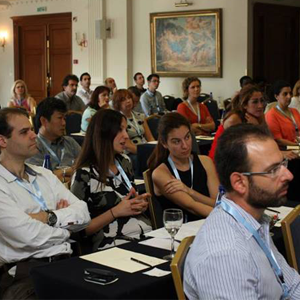
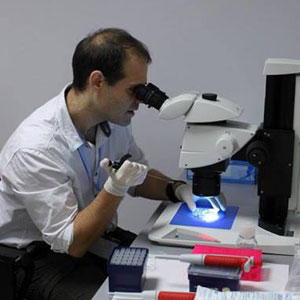
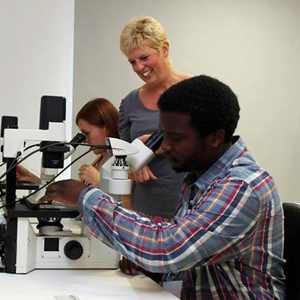
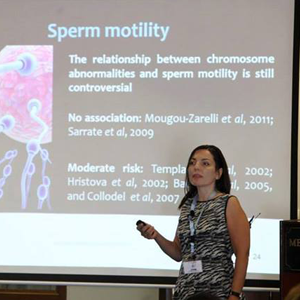
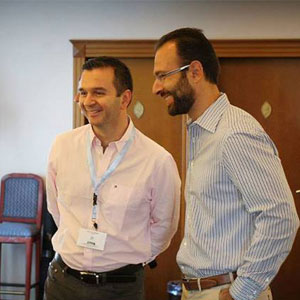
Target Audience
This two-day workshop is designed for reproductive scientists, embryologists, quality managers in IVF, clinicians as well as ART Unit managers who desire to improve their knowledge and understanding of all the recent advances in Quality and Risk Management for ART laboratories.
Topics
The theoretical session will give an overview of the recent advances in Quality and Risk Management for ART laboratories. In the ‘Hands-on’ sessions, different experts will focus on different methodologies/techniques to standardise, measure, validate, and control different parameters like temperature, pH, air quality etc. in ART laboratories. In the’ Brains-on’ sessions delegates are invited to present a specific problem/trouble/issue they have or are encountering in their laboratories. In an interactive way, the expert team and the participants will investigate the problem and design a route for solving and preventing this (and other) problems in the future.
Topics discussed will include the following
- What is quality and why does it matter?
- What is quality management?
- What is total quality management (TQM)?
- ISO 9001 – ISO 15189 – What is in the number?
- How does TQM impact your day to day work in the ART laboratories: IVF, Andrology, PGD and Cryobiology laboratories
- How to collect and manage your data
- Internal and external quality control for IVF, Andrology, PGD and Cryobiology laboratories
- KPI’s and other stuff: How to define your success rates in TQM and the role of statistics
- What is risk and how do you analyse it?
- Starting a new ART Unit: Planning, building, validating and starting: so many QCM challenges
- Non-conformity registration in ART: why bother?
- The particular nature of IVF Total Quality Management: successes and pitfalls
- How do I prepare, implement and review SOPs (Standard Operating procedures)?
- How do I measure and validate temperatures, O2 and pH of specific equipment in my laboratories
- What about selection, quality and validation of media used in my laboratories?
- I need to prevent errors and have traceability in all my laboratory activities and cryostorage system. Is there a simple way?
- I need safe materials and equipment for my laboratory and patient related procedures. Are they safe? How to select?
- Air quality: is it that important and if so, how to measure and control it?
- We are moving to a new operating theatre for our egg collections and embryo transfers. How do I validate this? What do I need to test?
- I am a gynaecologist and I want to start using cheaper embryo transfer catheters, but the embryologist claims they are toxic for the embryos. What to do?
- I think that one my embryologists is performing poorly? How can I test this in objectively?
Accreditation
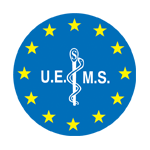
The European Accreditation Council for Continuing Medical Education (EACCME) has granted 12 European CME credits for attending the Workshop on ‘Quality and risk management in your IVF laboratories: From theory to practice.’ The EACCME is an institution of the European Union of Medical Specialists (UEMS).

ACE India
The Academy of Clinical Embryologists India (ACE), has approved the Workshop on ‘Quality and risk management in your IVF laboratories: From theory to practice.’
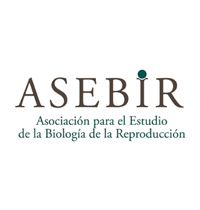
ASEBIR
The Embryolab Academy Workshop is under the auspices of ASEBIR
Prominent Speakers
The Embryolab Academy strives to provide evidence based scientific knowledge presented by an international panel of prominent lecturers. Our speakers have been carefully selected on the basis of the importance and weight of their scientific work in the specific domains of interest as well as their excellent educational skills.
The h-index is an index that attempts to measure both productivity and impact of the published work of a scientist. The index is based on the set of the scientist’s most cited papers and the number of citations that they have received in other publications.
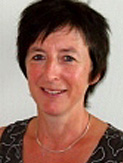
Greta Verheyen
PhD, M Sc, Bac Sc, Sr Clinical Embryologist, Lab Director, h-index: 30
Centre for Reproductive Medicine, UZ Brussel, Laarbeeklaan 101, Jette 1090, Belgium
Dr. Greta Verheyen graduated as Doctor in Science at the Catholic University of Leuven (Belgium) in 1986. In 1990, she started as clinical embryologist in the Centre for Reproductive Medicine at the University Hospital of Brussels, where she became coordinator Clinical Embryology in 2000.
In 2009, she was appointed as Head of the accredited ART Laboratory (ISO 15189) of the Centre for Reproductive Medicine in Brussels. Since 2008, she is recognized as senior clinical embryologist by ESHRE. She is a member of different fertility societies as ESHRE, ASRM, Alpha Scientists in Reproductive Medicine, and board member of the Belgian Society for Reproductive Medicine.
She is author and co-author of about 120 papers in peer-reviewed journals or book chapters, and is peer reviewer for several journals in the field of reproductive medicine.
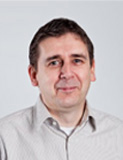
Hubert Joris
Bac Med Lab Tech, ESHRE accredited Clinical Embryologist, Medical Affairs Manager , h-index: 29
Vitrolife, Västra Frölunda, Sweden
Hubert Joris is a BSc in medical laboratory technology. He has been working in ART from 1989 until 2004 at the Centre for Reproductive Medicine of the Dutch-speaking Brussels Free University, Belgium where he co-authored the first paper on ICSI pregnancies. Hubert is the (co)-author of over 60 peer reviewed articles on ICSI, embryology, cryopreservation, embryo biopsy, PGD and pregnancy follow up.
He is the recipient of two ESHRE awards at the 1998 and 2004 Annual meeting of the European Society of Human Reproduction and Embryology. Hubert is also an ESHRE accredited Clinical Embryologist. Hubert Joris is currently working at the research department of Vitrolife, where his is involved in the scientific and technical developments.
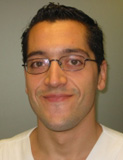
Nicolás Garrido Puchalt
PhD, MSc, M Res Methods, Bac Sc, Director of the Andrology Laboratory and Sperm Bank, h-index: 26
Instituto Universitario IVI and FIVI, Andrology Laboratory and Semen Bank, Valencia, Spain
Dr. Nicolás Garrido received his Biological Sciences Degree in 1997 from the University of Valencia in Spain. He did a pre-doctoral fellowship at the Frauenklinik, Düsseldorf, Germany. He received his Ph.D. Degree in Obstetrics and Gynaecology in 2001 from the University of Valencia, Spain, and the Extraordinary Prize for his thesis work in 2002. He also has a Master degree in Research Methods; Design and Statistics from Universidad Autónoma de Barcelona, Spain.
Since 2000, he is the Director of the Andrology Laboratory and Sperm Bank at the Instituto Valenciano de Infertilidad (IVI). Dr. Garrido is a member of several scientific societies and has twice received the research award from the Spanish Society of Fertility, and the Prize Paper of the Spanish Society of Urology. The primary areas of his research are the molecular markers of male infertility and sperm survival after freezing/thawing, assisted reproduction in HIV/VHC serodiscordant couples, and sperm banking.
Dr. Garrido is the recipient of several grants from public and private organizations in Spain. He has published over 100 articles and 40 reviews or book chapters, made almost 300 presentations at national and international congresses. He is also currently statistics assessor of IVI Valencia the biggest infertility clinic in Spain. Dr. Garrido coordinates the fellowship courses from the Teaching Area of the IVI group and is Professor in the Master in Biotechnology of the Human Reproduction from Instituto Universitario IVI, Valencia University. He is also in charge of IVICO, an IVI group company dedicated to provide with training, consulting and auditing services to assisted reproduction units.
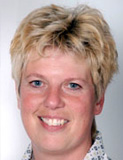
Edith Coonen
PhD, M Sc, Bac Sc, Sr Clin. Embryologist PGD specialist – IVF Laboratory – Cytogenetics, h-index: 17
Academic Hospital Maastricht, the Netherlands
Dr. Edith Coonen is a Senior Clinical Embryologist at the department of Reproductive Medicine and heads cytogenetic based diagnosis in PGD at the department of Clinical Genetics, Maastricht University Medical Centre (MUMC), in Maastricht, the Netherlands. Edith graduated from Maastricht University in 1989 with a BSc in Health Sciences and completed her PhD at the department of Genetics & Cell Biology from the same institute in 1995.
Between 1995 and 1997 Edith was a Research Fellow in the department of Reproductive Medicine, MUMC working on the chromosomal constitution of gametes and preimplantation embryos. In 1997 she completed her specialist training in Clinical Embryology at the department of Reproductive Medicine, MUMC and has since worked there as a Clinical Embryologist. Edith has been involved in the PGD activities at MUMC from the start in 1994 and currently oversees PGD for chromosomal indications.
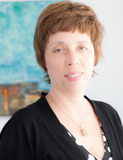
Martine Nijs
PhD, M Sc, Bac Sc, Sr Clinical Embryologist, Research and Development Consultant, Scientific Advisor, h-index: 15
Embryolab, Thessaloniki, Greece; Stg Geertgen, Elsendorp, the Netherlands
Dr. Martine Nijs has been working in the field of reproductive biology for over 20 years; first as a senior clinical embryologist and later as IVF lab director. She obtained her PhD in Medical Sciences at the Free University of Brussels in Belgium. She is also an ESHRE accredited senior clinical embryologist. Research as well as delivering high quality laboratory work has lways been one of her passions.
Martine is first author of 17 peer reviewed publications five chapters in books and co-author in 54 publications. Martine has presented over a hundred lectures as an invitation speaker at national and international meetings. She has been actively involved in organising International Meetings, Workshops and one-to-one hands on workshops. Dr. Martine Nijs is member of the Editorial Board Faculty 1000 Research and ad hoc Board member of 9 international Journals in reproductive biology and fertility treatments. She is an active member of 6 professional societies.
Martine is co-founder and Director of the Embryolab-Academy. Dr Nijs is currently working as Research and Development Consultant at Embryolab, Greece and as Scientific Advisor at the Geertgen Foundation, the Netherlands.
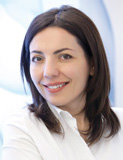
Alexia Chatziparasidou
M Clin Embryology, M Sc, Bac Sc, Sr Clinical Embryologist, Laboratory Director Embryolab, Thessaloniki, Greece, h-index: 3
Embryolab, Thessaloniki, Greece
Mrs. Alexia Chatziparasidou is a clinical embryologist with long experience of more than 30,000 IVF cycles. Her scientific interests focus mainly on the application of modern fertility preservation techniques. She has also long experience on treating male subfertility, as well as on developing methods of co-culture with homologous endometrial cells.
In 2007, Mrs Chatziparasidou completed her M Sc (Clinal Embryology with distinction at the University of Leeds, UK, Since 2007 she is actively involved in preimplantation genetic diagnosis and screening in couples at risk. In 2004, Mrs Chatziparasidou founded and has been the director of Embryolab, a modern state of art assisted reproduction unit.
She is member of Alpha, the international society of Reproductive Scientists (alpha scientist), the European Society of Human Reproduction and the American Society of Reproductive Medicine. Mrs Chatziparasidou is co-founder and Director of the Embryolab-Academy.
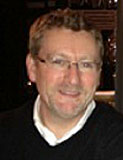
David Morroll
PhD, MSc , Sr Clinical Embryologist, h-index: 3
Origio, Måløv, Denmark
Dr. David Morroll has worked as a Clinical Embryologist since 1986, training in Manchester, where he also completed his PhD studies. He has since managed laboratories in a number of UK IVF units including those in Nottingham, London and Leeds, and is currently Scientific Director for the Centre for Reproductive Heath at Daresbury in Cheshire. He joined ORIGIO a/s as Director of Embryology in November 2011, providing training and education, performing audits and troubleshooting visits, and participating in product R&D. He served as Chair of the UK Association of Clinical Embryologists (ACE) and Association of Biomedical Andrologists (ABA), as well as being involved with several working groups, notably the HFEA Expert Group on Multiple Births after IVF.
As well as general embryology expertise, Dr Morroll has a keen interest in quality management, acting as Quality Manager for certification to ISO9000:2008. He also worked with the UK National External Quality Assurance Schemes (NEQAS) for Andrology and Embryo Assessment, after performing the initial pilot studies in Nottingham.
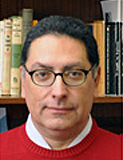
Haris Cazlaris
PhD, M Sc, Bac Sc, Sr Clinical Embryologist, ART Scientific Advisor, h-index: 2
Athens, Greece
Dr. Haris Cazlaris studied Biochemistry and Cell Biology. He trained in transgenic mouse technology during his post-doc, followed by specialisation in ART (1991). Haris is an ESHRE-accredited senior clinical embryologist. He set up the IVF laboratory at the Athens public maternity hospital (Lab Director, 1995-2000). He is a lecturer in medical embryology (Thessaly Medical School (2001-6)) and ART bioethics (postgraduate level National School of Public Health). Haris is appointed to the Health Department Committee and to the Hellenic National Authority of Medically Assisted Reproduction where he assists in designing Greek ART laws and bylaws (3305/05) as well as decrees on ART laboratory specifications and auditing.
Haris is (co)-author of several publications, an essay on the application of ART in Greece, and (co)-translated 20 textbooks into Greek, including W.J. Larsen’s Human Embryology and B.M. Carlson’s Human Embryology and Developmental. Dr. Cazlaris is currently working as an ART scientific advisor in the private sector.
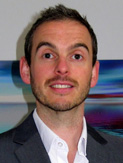
Stephen Harbottle
Bac Sc, Sr Clinical Embryologist, ACE Diploma Clinical Embryology, Lead Clinical Embryologist, h-index: 2
Cambridge IVF, Cambridge, UK
Stephen Harbottle is the Lead Embryologist and Quality Manager at Cambridge IVF; a purpose built fertility centre in the beautiful and historic City of Cambridge, and part of Cambridge University Hospitals NHS Foundation Trust. He joined the Cambridge IVF team in 2009 with the responsibility to produce a robust design and then oversee the construction, validation and licensing of the facilities which are centred around a ‘state of the art’ laboratory cleanroom suite.
Since treatment cycles commenced in 2011, Cambridge IVF has established a reputation as a provider of high quality individualised care with a commitment to patient safety and clinical excellence. Stephen has almost 20 years experience in clinical embryology and diagnostic andrology and is the current Chair of the Association of Clinical Embryologists (ACE) and the Association of Biomedical Andrologists (ABA). He consults and lectures internationally on laboratory design, validation and troubleshooting and is Managing Director of Embryologica Limited.
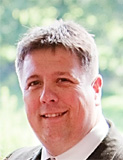
Matt Pettit
Bac Res Tech, General Manager, h-index: 1
IMT International, Tattenhall, UK
Matt Pettit is General Manager for IMT International Ltd, responsible for development and implementation of ‘Matcher’, an electronic witnessing and quality management system, and for the development of novel cryopreservation technologies and associated protocols. Since gaining an upper class degree in Biology at the University of Wales in 1990, Matt has worked in the field of Assisted Reproductive Technology, including roles managing laboratories, R&D and quality control at the UK’s leading bovine breeding companies and cryo-storage facilities. Matt was co-author of 5 peer reviewed publications.
Matt’s primary focus is now on developing simple-to-implement, practical solutions to error prevention, traceability and cryo-stores management in human IVF clinics and donor banks, with particular emphasis on compliance with the requirements of the EU Tissues & Cells Directive. This role involves designing systems that can be easily fitted around clinics’ existing SOPs and advising clinics on the validation required for such automated systems.
Workshop Programme
Programme 21st of March 2014
Morning session
| Chair: Martine Nijs, Greece and Edith Coonen, the Netherlands | |
|---|---|
| 8:00 – 8:30 | Registration with coffee and tea |
| 8:30 – 8:40 | Welcome by the Director of the Embryolab Academy Martine Nijs, Greece |
| 8:40 – 9:20 | What is quality and why does it matter? What is quality management? What is total quality management (TQM)? Edith Coonen, the Netherlands |
| 9:20 – 10:00 | ISO 9001–ISO 15189: what is in the name, what is in the number? Haris Cazlaris, Greece |
| 10:00 – 10:40 | Internal and external quality control for IVF, Andrology, PGD and Cryobiology laboratories Greta Verheyen, Belgium |
| 10:40 – 11:00 | Coffee break |
| 11:00 – 11:40 | How to collect and manage your data Nicolás Garrido Puchalt, Spain |
| 11:40 – 12:20 | Starting a new ART Unit: Planning, building, validating and starting: so many QCM challenges Stephen Harbottle, United Kingdom |
| 12:20 – 13:15 | Lunch |
Programme 21st of March 2014
Afternoon Session Hands-on: ‘Let’s get to work!
| Chair: Martine Nijs, Greece and Greta Verheyen, Belgium | |
|---|---|
| 13:15 – 13:45 | How do I prepare, implement and review SOPs (Standard Operating procedures)? Haris Cazlaris, Greece |
| 13:45 – 14:15 | How do I measure and validate parameters like temperatures, O2 and pH in specific equipment in my laboratories Hubert Joris, Sweden |
| 14:15 – 14:45 | What about selection, quality and validation of media used in my laboratories? David Morroll, Denmark |
| 14:45 – 15:15 | I need to prevent errors and have traceability in all my laboratory activities and cryostorage system. Is there a simple way? Matt Pettit, United Kingdom |
| 15:15 – 15:45 | Coffee break |
| 15:45 – 16:15 | I need safe materials and equipment for my laboratory and patient related procedures. Are they safe? How to select? Martine Nijs, Greece |
| 16:15 – 16:45 | Air quality: is it that important and if so, how to measure and control it? Alexia Chatziparasidou, Greece |
| 16:45 – 17:15 | How do I design my ‘move’ to a new laboratory? Stephen Harbottle, United Kingdom |
| 17:15 – 17:30 | Summary of Hands-on workshop |
| 19:30 | Workshop Reception and Dinner |
Programme 22nd of March 2014
Morning session
| Chair: Alexia Chatziparasidou, Greece and Martine Nijs, Greece | |
|---|---|
| 8:45 – 9:25 | How does TQM impact your day to day work in the ART laboratories: IVF, Andrology, PGD and Cryobiology laboratories Greta Verheyen, Belgium |
| 9:25 – 10:05 | KPI’s and other stuff: How to define your success rates in TQM and the role of statistics Nicolás Garrido Puchalt, Spain |
| 10:05 – 10:45 | Non-conformity registration in ART: what are the lessons to learn? Alexia Chatziparasidou, Greece |
| 10:45 – 11:05 | Coffee break |
| 11:05 – 11:45 | What is risk and how do you assess it? Edith Coonen, the Netherlands |
| 11:45 – 12:30 | The particular nature of IVF Total Quality Management: successes and pitfalls Martine Nijs, Greece |
| 12:30 – 13:30 | Lunch |
Programme 22nd of March 2014 Afternoon Session
Brains-on: ‘Bring your troubles to us and we will ’shoot’ them!’
| Chair: All invited speakers will take part of the expert panel | |
|---|---|
| 13:30 – 17:00 |
Including coffee break Topic examples:
|
| 17:00 – 17:15 | Summary of Brains-on workshop |
| 17:15 | Closure of workshop and Farewell drink |
Workshop Secretariat
Embryolab Academy
173-175 Ethnikis Antistaseos, 551 34 Kalamaria, Thessaloniki, Greece
info@embryolab-academy.org
www.embryolab-academy.org
Workshop Venue
Makedonia Palace Hotel
2, Megalou Alexandrou Avenue, 546 40, Thessaloniki, Greece
Tel: (+30) 2310 897197
Fax: (+30) 2310 897211
www.makedoniapalace.com
Accommodation
Makedonia Palace Hotel 2,
Megalou Alexandrou Avenue, 546 40, Thessaloniki, Greece
Tel: (+30) 2310 897197
Fax: (+30) 2310 897211
www.makedoniapalace.com
Climate
Day temperatures in March range from 5°C to 18°C, overall days are sunny and dry but rain can be present from time to time.
Workshop language
The official language of the Workshop is English.
Time zone
The time zone in Greece is Eastern Europe Time Zone : UTC/GMT +2 hours.
Liability
The Workshop secretariat and organiser cannot assume liability for personal accidents, loss of or damage to private property of participants, either during, or directly arising from the Workshop. Participants should make their own arrangements with respect to health and travel insurance.
Visas
International participants to the Workshop may require visas in order to Greece. Participants are requested to check with their consulate or diplomatic mission in their home country or with their travel agency for visa requirements. It is the responsibility of the participant to obtain a visa if required.
Letter of Invitation
Upon request, the Secretariat of the Workshop will send a personal invitation to participants. This invitation is meant only to help visitors to raise travel funds or to obtain a visa, and is not a commitment on the part of the organisers to provide any financial support.
Certificate of attendance
A Certificate of attendance will be awarded to the delegates after attending the full workshop programme.
Travel to Thessaloniki, to the Makedonia Palace Hotel
Direct flights are available to the Makedonia airport of Thessaloniki in Greece from Vienna, Rome, Frankfurt, Düsseldorf, Munich, Stuttgart, Belgrade, Boekarest, London and Moscow.
Makedonia Airport 13 km
Taxis can be easily found outside the airport arrival hall. It will take about 20 minutes to arrive from the airport to the Makedonia Palace hotel. The price for a single taxi journey is around 20 Euro.
By car: Follow Georgikis Scholis Avenue towards west. At some point, its name changes to Ethnikis Antistaseos, Vas. Olgas Avenue and then Vas. Georgiou Avenue. At the stop lights of City Hall of Thessaloniki, the left turn will lead you to Meg. Alexandrou Ave, after approx. 400 m the hotel is on your right.
By bus: Faliro bus stop of line 78 (Airport – Bus Station) is less than 150 m away from the hotel.
Train Station 4 km
By car: follow Monastiriou street towards east, and right after Dimokratias square take a right to Dodekanisou street (Salaminos street at a later point) to reach the entrance of the Port’s Passenger Terminal entrance. Take a left to Kountouriotou street (Nikis Ave at a later point) until you reach the White Tower. Follow Meg. Alexandrou Ave, and after approx. 400 m the hotel is on your right.
By bus: Faliro bus stop of line 8 (New Train Station – IKEA East Terminal Station) is less than 150 m away from the hotel.
Port Passenger Terminal 4 km
By car: follow Kountouriotou street (Nikis Ave at a later point) towards west, until reaching the White Tower. Follow Meg. Alexandrou Ave, and after approx. 400 m the hotel is on your right.
By bus: Faliro bus stop of line 8 (New Train Station – IKEA East Terminal Station) is less than 150 m away from the hotel.
Car parking
Car parking with limited number of parking places next to the hotel is free of charge. Underground parking is available at a cost of 15 Euro/day.
Registration and Fees
Registration can be done online through this form.
Fees are to be paid by bank transfer. Bank transfer costs endured during payment are to be covered by the delegate.
Early bird Registration Fee before 31st of January 2014: 850 Euro
Normal registration Fee as of the 1st of February 2014: 950 Euro
Registration fee is an ‘All – in’ fee and includes Workshop registration, accommodation and social programme:
- Theoretical morning sessions
- ‘Hands-on’ and ‘Brains-on’ afternoon sessions
- Workshop Manual
- Certificate of attendance
- Refreshments
- Lunches
- Friday evening Workshop reception and dinner
- Farewell drink
- 3 nights accommodation in single room including breakfasts in a 5 star hotel. ‘Sea view’ rooms are limited and are allocated on the basis of a ‘first come first serve’ system by registration to the workshop.
Extra night accommodation can be booked at the Embryolab Academy special rate of 100 Euro per night. Please indicate on the registration form.
Accompanying person
For a fee of 120 Euro an accompanying person can be registered. The accompanying person is entitled to share the room with a registered participant on a ‘bed and breakfast’ basis and attend the evening workshop reception and dinner. The accompanying person is not entitled to attend the workshop lecture sessions.
Cancellation fees
All cancellations must be faxed or e-mailed. Refund of registration fees will be the as follows:
- Until February 15th: 100% refund (minus 50 Euro administration cost)
- After February 15th: no refund on cancellations
Sponsors
Embryolab Academy is grateful to the following sponsors :
Thessaloniki

Thessaloniki is the second-largest city in Greece and the capital of the region of Central Macedonia. Greece’s second major economic, industrial, commercial and political centre, and a major transportation hub for the rest of southeastern Europe. The city is renowned for its festivals, events and vibrant cultural life in general, and is considered to be Greece’s cultural capital.
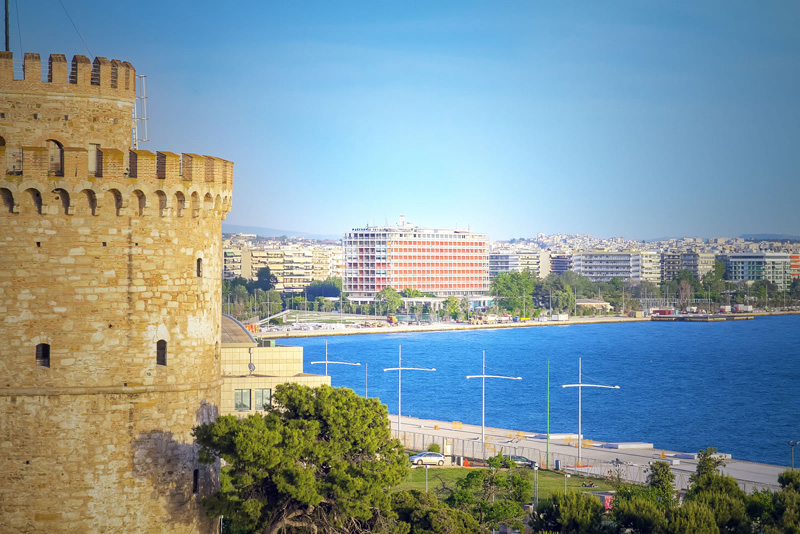
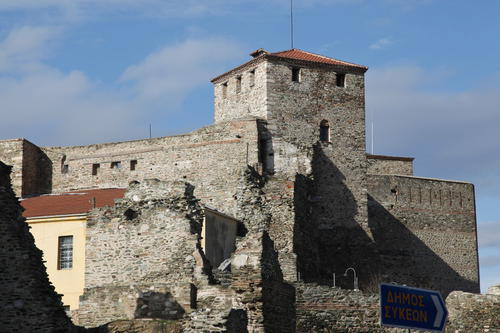

Founded in 315 BC by Cassander of Macedon, Thessaloniki’s history spans some 2,300 years. An important metropolis by the Roman period, Thessaloniki was the second largest and wealthiest city of the Byzantine Empire. Thessaloniki is home to numerous notable Byzantine monuments, including the Paleochristian and Byzantine monuments of Thessaloniki, a UNESCO World Heritage Site, as well as several Roman, Ottoman and Sephardic Jewish structures. The city’s main university, Aristotle University, is the largest in Greece and the Balkans.

Thessaloniki is a popular tourist destination in Greece. In 2010, Lonely Planet ranked Thessaloniki as the world’s fifth-best party city worldwide, comparable to other cities such as Dubai and Montreal. For 2013 National Geographic Magazine included Thessaloniki in its top tourist destinations worldwide.
